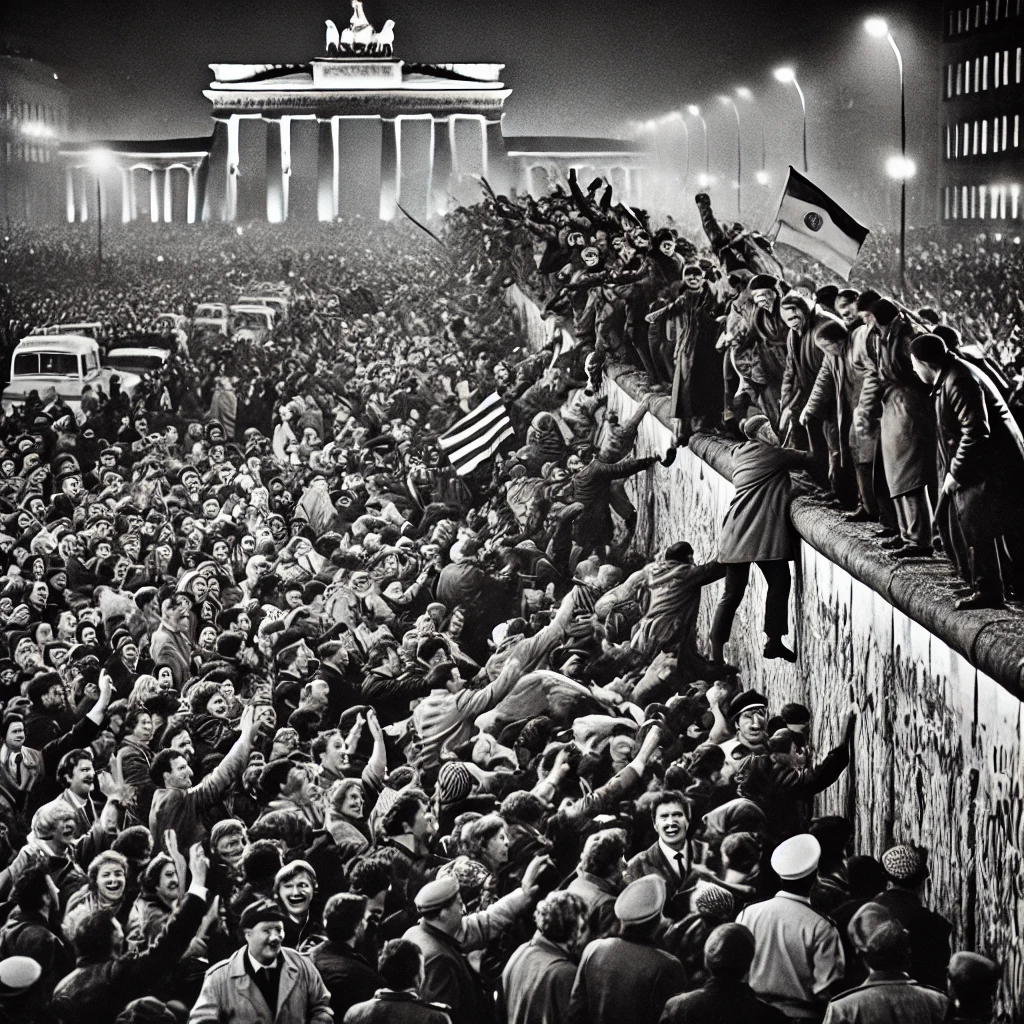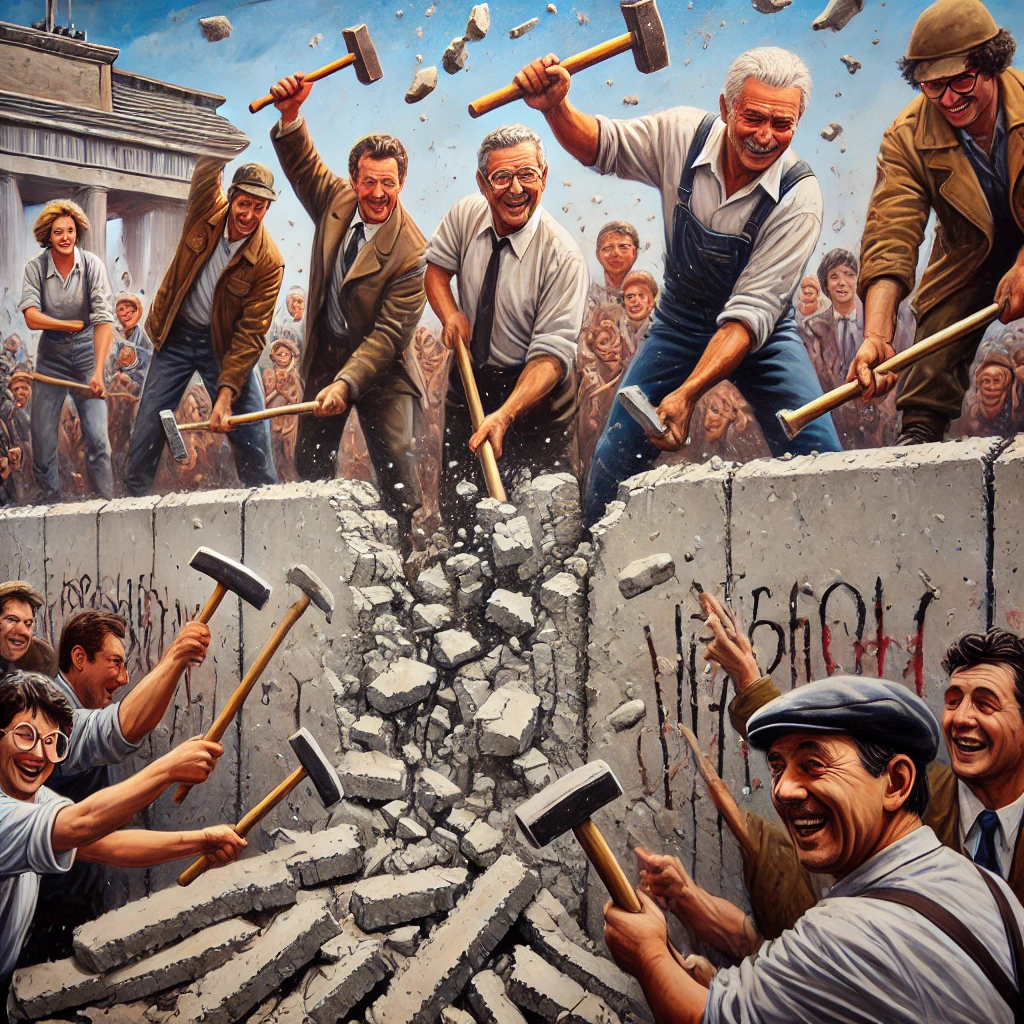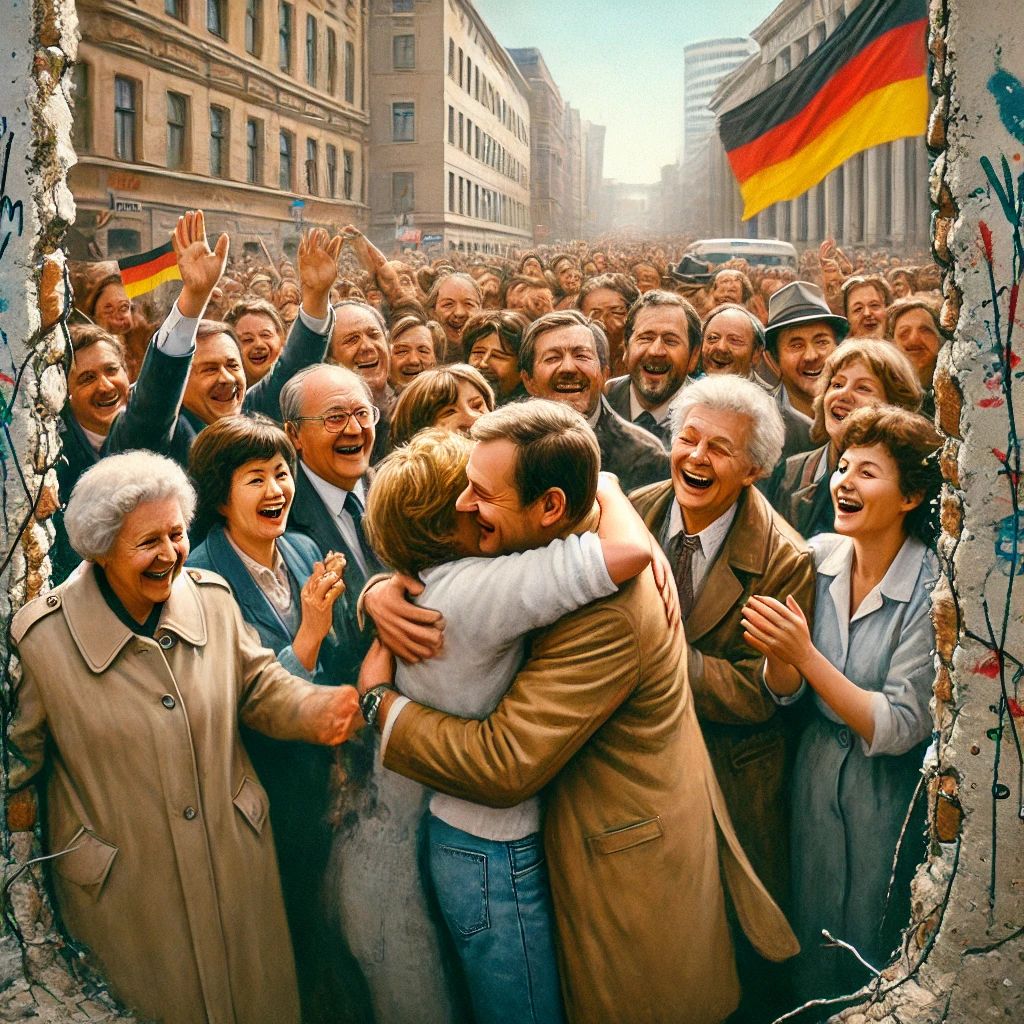On November 9, 1989, the world witnessed a historic moment as the Berlin Wall, a symbol of division and oppression, was breached. The fall of the wall not only marked the end of a physical barrier that separated East and West Berlin but also signified the collapse of the Iron Curtain and the broader movements for freedom and democracy across Eastern Europe. This momentous event would reshape the political landscape of Europe and the world.

The Build-Up to the Fall
The Berlin Wall was erected in 1961, dividing the city and symbolizing the Cold War’s ideological struggle between communism and democracy. Over the years, the wall became a powerful representation of the repressive regimes in Eastern Europe, leading to increasing frustration and unrest among citizens living under such regimes. By the late 1980s, a wave of protests and reform movements was sweeping across Eastern Europe, with many calling for greater freedoms and the end of communist rule.
In East Germany, public discontent grew as citizens organized protests demanding the right to travel freely and enjoy democratic reforms. Amidst mounting pressure, the East German government announced on November 9, 1989, that citizens would be allowed to cross the border into West Berlin. The announcement led to a spontaneous rush of people towards the wall, culminating in its eventual dismantling as jubilant crowds celebrated their newfound freedom.

A New Era in Europe
The fall of the Berlin Wall was a watershed moment that heralded the end of the Cold War and the beginning of a new era in Europe. It paved the way for the reunification of Germany and set in motion the collapse of communist governments across Eastern Europe. The event inspired movements for democracy and freedom worldwide, demonstrating the power of collective action and the longing for liberty.
The dismantling of the wall also served as a powerful symbol of hope and resilience. It illustrated that the aspirations for freedom and unity could overcome years of division and repression. The images of people celebrating as they crossed into West Berlin became iconic, capturing the spirit of a generation that had long yearned for change.

The fall of the Berlin Wall on November 9, 1989, marked a pivotal turning point in history, symbolizing the triumph of freedom over oppression. It reshaped the political landscape of Europe and inspired movements for democracy around the globe. As we reflect on this historic event, we acknowledge the enduring legacy of the Berlin Wall and the collective spirit that brought about profound change. The anniversary serves as a reminder of the importance of freedom, unity, and the ongoing pursuit of justice for all.
